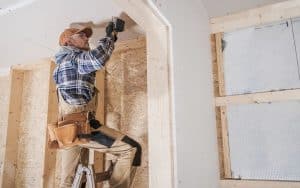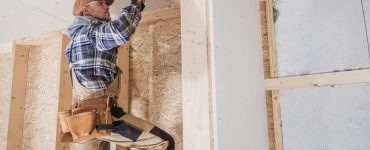When shopping for something as necessary to your household as an air filter, you want a long-lasting, high-quality product. Changing out a filter quickly can be frustrating, and you may feel like you’re spending more money on a product that does not last. That can be especially frustrating for those supplying larger buildings, like offices, with air filter changes.
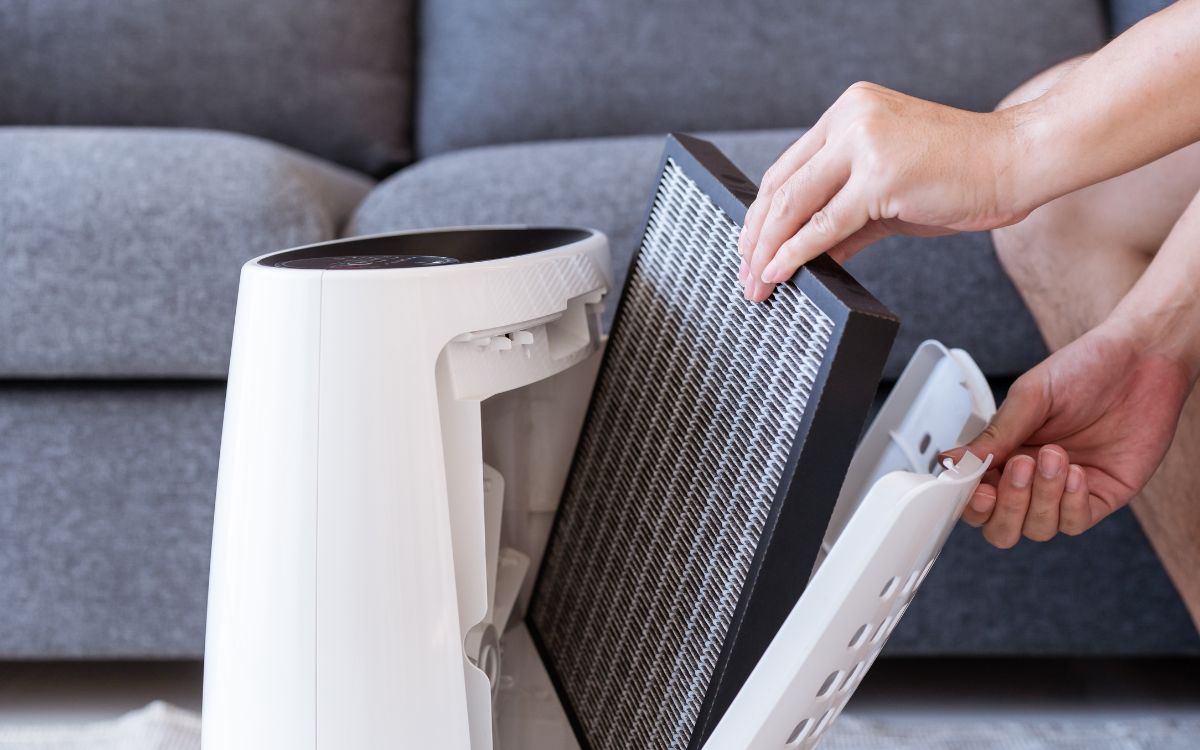
But how long do carbon air filters last, especially compared with traditional air filters? Here is what you can expect from your air filtration choices.
What are Carbon Air Filters?
Carbon air filters are a type of air filtration system designed to remove pollutants, odors, and contaminants from indoor air. They are made up of activated carbon, a highly porous material that is treated to increase its surface area. This increased surface area allows the carbon filter to effectively trap and absorb a wide range of airborne particles and chemicals.
Definition and Composition of Carbon Air Filters
Carbon air filters consist of a sturdy frame with a layer of activated carbon material enclosed within it. The frame is typically made of plastic or metal and is designed to securely hold the carbon material in place. The activated carbon is usually in the form of small granules or a mesh-like structure, maximizing its surface area for optimal filtration efficiency.
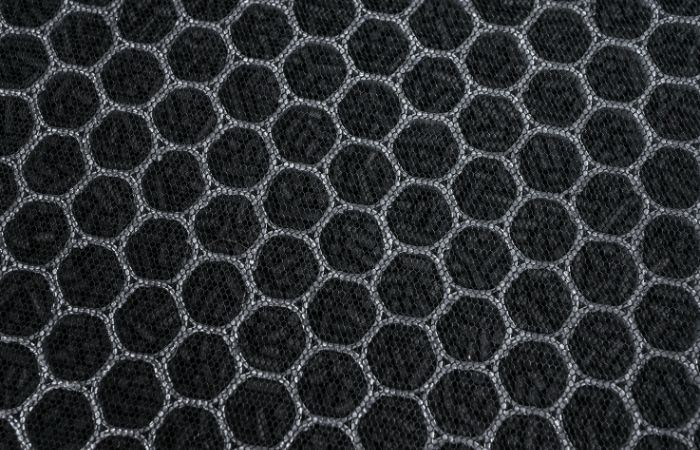
How Carbon Filters Work to Remove Pollutants
Carbon filters work through a process called adsorption, where airborne particles and gases adhere to the surface of the carbon material. The activated carbon contains millions of tiny pores and crevices that attract and trap pollutants as air passes through the filter. The pollutants, such as volatile organic compounds (VOCs), chemicals, odors, and some allergens, become trapped within the carbon’s porous structure, preventing them from recirculating into the indoor air.
Average Lifespan of a Carbon Air Filter
Traditional air filters must be exchanged every three months or every ninety days. That can feel like a short time, and you may feel frustrated with this. Failure to change them out within this time can lead to your filter failing to keep your air as clean as possible. For those with severe allergies or smokers in their homes, that can lead to a sharp decrease in air quality.
The average air filter with carbon may last longer than a traditional filter. These air filters can last for up to six months. That is twice the lifespan of a traditional filter. While these air filters may be more expensive than the traditional air filter, those extra dollars may lead to better protections for your health.
Other Benefits of a Carbon Air Filter
Need more than a longer lifespan? Here are some of the benefits you can expect when you purchase a carbon air filter:
- Filter more irritants: While traditional air filters should also remove allergens, mold, and germs from the air in your home, carbon air filters can remove more, and they can do so more quickly. That means your home’s air will be fresher and cleaner.
- Eliminate VOCs: Volatile organic compounds (VOCs) are substances found in cleaning supplies, pesticides, and other common household chemicals that can cause short-term and long-term health concerns. With a carbon air filter, you should have fewer VOCs in the air of your household, meaning cleaner air for you and your family.
- No harmful pollutants: When choosing an air filter, go with one that allows the fewest pollutants into your household. Not only do carbon filters capture many of these, but they do not release any pollutants. That makes your home safer.
Frequently Asked Questions about Carbon Air Filter Lifespan
When it comes to the lifespan of carbon air filters, there are often questions and concerns. Here, we address some of the most frequently asked questions to provide clarity and guidance.
Can Carbon Filters be Cleaned or Reused?
Carbon filters are not typically designed to be cleaned or reused. The activated carbon material within the filter becomes saturated with pollutants over time, and cleaning methods may not effectively restore its adsorption capacity. Therefore, it is recommended to replace carbon filters when they reach the end of their lifespan.
Are There Any Warning Signs Before a Carbon Filter Fails?
There are a few indicators that can suggest a carbon filter is reaching the end of its lifespan. Reduced air quality and increased allergies can be a sign that the filter is no longer effectively trapping pollutants. Additionally, if you notice unpleasant odors or lingering smells that were previously eliminated, it may indicate that the carbon material is saturated and needs replacement. Decreased airflow and reduced system efficiency are other potential signs that the filter is no longer functioning optimally.
Do Carbon Filters Need Replacement If There Are No Noticeable Issues?
Yes, even if there are no noticeable issues, carbon filters still need to be replaced at regular intervals. Over time, the activated carbon material becomes less effective as it becomes saturated with pollutants. Regular filter replacement ensures that your air filtration system maintains its efficiency in removing pollutants and odors from the indoor air. Following the manufacturer’s recommended replacement schedule is important for maintaining clean and healthy indoor air quality.
How Does the Lifespan of Carbon Filters Compare to Other Filter Types?
The lifespan of carbon filters can vary depending on several factors, including the type and quality of the carbon material used, environmental conditions, and pollutant levels. Generally, carbon filters have a shorter lifespan compared to HEPA filters, which are designed to capture smaller particles. HEPA filters can last several months to a year or more, while carbon filters typically need replacement every 2 to 3 months, depending on usage and air quality.
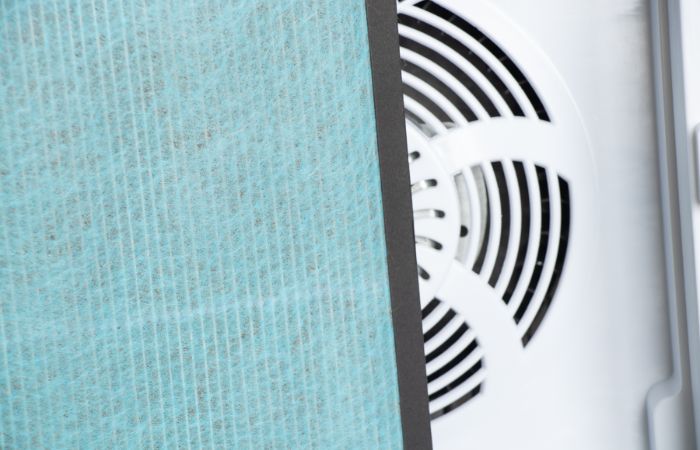
Can a Carbon Filter be Replaced with a Different Filter Type?
It is important to consult the manufacturer’s guidelines and recommendations before replacing a carbon filter with a different filter type. Different filters serve different purposes, and they may have specific compatibility requirements with the air filtration system. HEPA filters, for example, are effective at capturing fine particles but may not have the same odor removal capabilities as carbon filters. Understanding the specific needs of your indoor air quality and consulting with professionals can help determine the most suitable filter type for your needs.
An Air Filter That Lasts
Choosing an air filter that lasts longer can save you money. But it is not just about the cost savings – it’s about the quality of the product you use for your household.
When you buy from FilterKing, you can expect high-quality air filters, no matter what filter you choose for your home. Our filters are made with your health and safety in mind, so you can expect cleaner air. Check out our other pages to learn more about your filtration options, or call us to get on the line with a representative for assistance.



